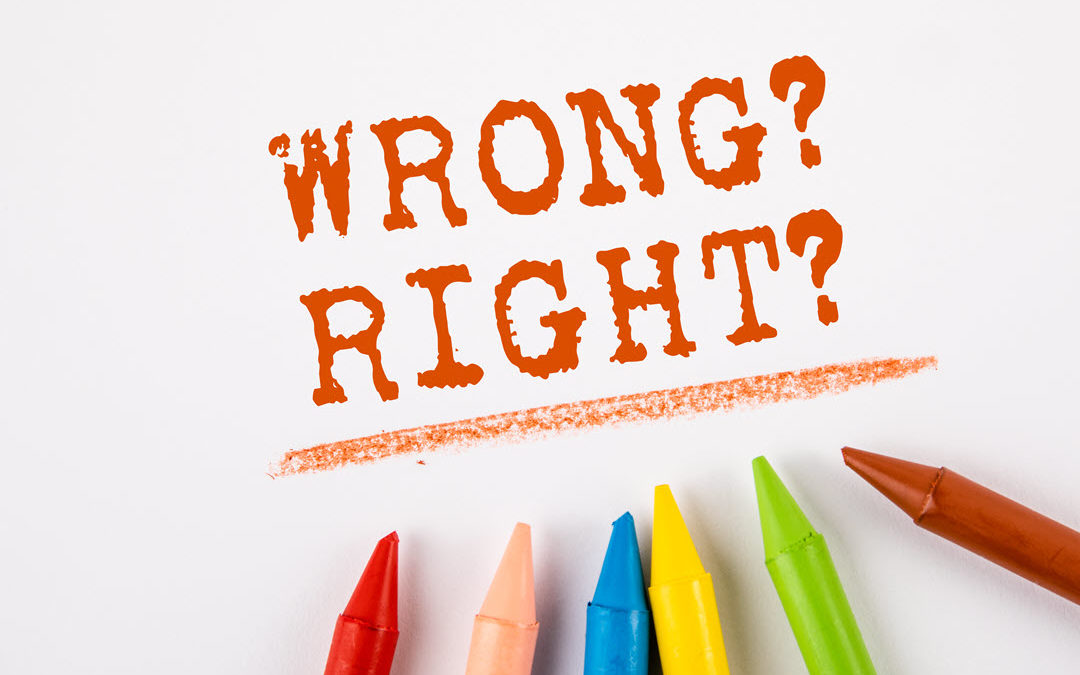Constantly questioning whether you are a truly good and moral person? You may be struggling with Moral Scrupulosity.
Moral scrupulosity is a very common OCD symptom in both children and adults. It can manifest in many different ways…worrying that you may have hurt or harmed someone in some way, obsessing that you may have lied, cheated, or broken a rule, compulsively analyzing whether you are a “good” or “bad” person, etc.
I work with scrupulosity in a pretty straightforward, practical manner. The first foundational step is to come to terms with the fact that we can never have 100% certainty about anything. That’s right…not one single thing. We could all be living in a matrix. Who knows? I know accepting we cannot have certainty is easier said than done, especially when these types of worries usually have at least some kernel of truth to them. However, it’s important to remember that, with OCD, that kernel is magnified to the umpteenth degree, and anything to the contrary tends to be filtered out.
The second step is to identify if there is anything productive you can or should do in response to your perceived mistake or offense. Generally, with scrupulosity, any action you might think about taking either seems nonsensical or over-the-top (i.e, turning yourself in to the authorities for taking someone’s pen without realizing it) or is really more about making you feel better rather than genuinely righting the situation (i.e., compulsively apologizing or confessing to someone when that will likely just frustrate or hurt that person). Ironically, getting stuck on these types of worries can lead to the kind of insensitive, selfish, and self-absorbed behaviors you are desperately trying to avoid.
Finally, if you cannot find any reasonable or warranted action to take as the result of whatever perceived mistake you have made, carry on as usual. If the worry or thought comes back or doubt sets back in (which it likely will), confirm that you will never have 100% certainty about whether you did this are that or whether you are this or that but, because there is no productive action you can identify to take, the only other choice is to move on, making every effort to live your life according to your values as best possible. Look ahead, not back.
If, in the event, you find that there is some sort of reasonable action to take as the result of your mistake or offense, then do it. As human beings, we all make mistakes…lots of them, in fact. However, what is way more important than the mistakes we make is how we handle them. It takes tremendous courage to look at our mistakes and shortcomings honestly, hold ourselves accountable for them, make reasonable amends when possible, problem solve to figure out how we can do things differently in the future, and then work our butts off to do just that. With a lot of hard work, tremendous growth can come from our worst mistakes. That work is commendable and growth promoting. However, if you get stuck judging yourself or analyzing how or if you should be judging yourself, that growth will be impeded, potentially turning you into the exact person you do not want to be.
If you are struggling with Moral Scrupulosity, Exposure and Response Prevention (ERP) along with Acceptance and Commitment Therapy (ACT) can be very effective in eliminating the rumination and compulsive behaviors associated with this very common OCD symptom.


Recent Comments